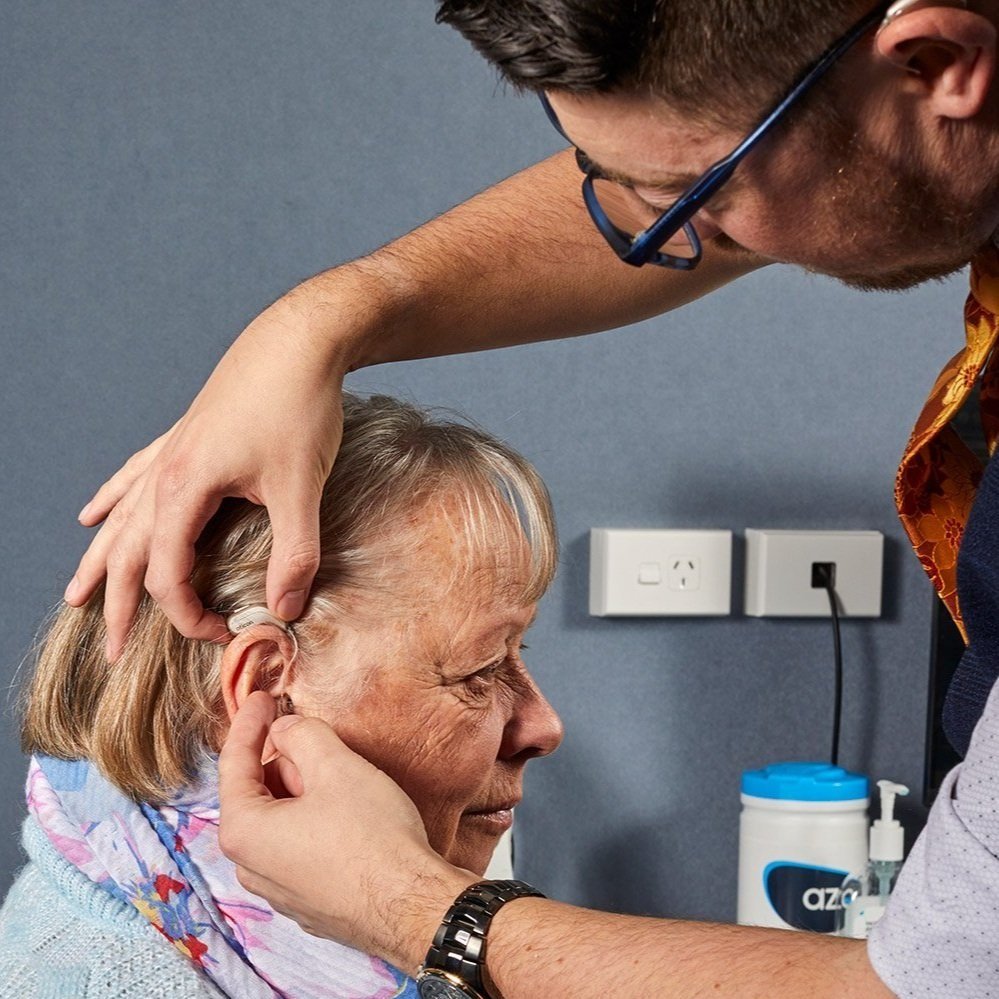
Hearing Loss doesn’t need to hold you back.
Find out the symptoms, causes, types and treatment options for hearing loss.
We’re here for you
the clinicians at HEARING AND BALANCE bring OVER 20 YEARS COMBINED EXPERIENCE to provide EXCEPTIONAL OUTCOMES FOR OUR CLIENTS.
With an extensive range of hearing solutions and easy-to understand advice we will help you enhance your day to day life through personalized care. Working in close partnership with the team at Ear, Nose, Throat and Hearing Hawke’s Bay means we are in a position to support you through your hearing healthcare journey.
FIND OUT MORE
7 Signs and Symptoms
of Hearing Loss.
There are a number of reasons that you may be experiencing hearing loss. If you recognise any of the below options then we recommend booking in a hearing assessment today with our experienced Audiologists.
DIFFICULTY hearing in noise
HEAR BUZZING OR RINGING SOUNDS IN YOUR EARS
ASKING PEOPLE TO REPEAT THEMSELVES
OTHERS APPEAR TO BE MUMBLING
need to use speaker for PHONE CONVERSATIONS
INCREASED VOLUME ON THE Tv OR RADIO
DIFFICULTY LOCATING SOUNDS

What are the main types of hearing loss?
Hearing loss can affect your everyday quality of life. The main types of hearing loss can depend on which part of the ear is damaged.
-
Hearing loss caused by an issue with the hearing organ (cochlea) or hearing nerve. This type of hearing loss is usually permanent.
Caused by: aging, noise exposure, traumatic damage, medications and others
-
Hearing loss caused by an issue in the ear canal or middle ear. This type of hearing loss can be temporary or permanent.
Caused by: glue ear, perforation, wax impaction, genetic conditions and others
-
Hearing loss with both a sensorineural and conductive component. This means there may be multiple causes for the hearing loss.
What causes Hearing Loss?
At Hearing and Balance we perform a full diagnostic hearing assessment where we will look at the likely causes of your hearing loss but some of the common causes include:
Aging
Excessive Noise exposure
Genetic Conditions
Head Trauma
Inflammation
Fluid behind the ear drum
Wax build up
Ototoxic medications



We’re here to help
We offer a range of solutions, products and technology from leading brands.
FAQs
-
• Difficulty following conversations
• Phone conversations are unclear
• Asking people to repeat themselves
• Others appear to be mumbling
• Difficulty locating sounds
• You hear buzzing or ringing sounds in your ears
• Increased volume on the television, phone or radio
-
A diagnostic hearing test will include:
Otoscopy: We will look in your ears with an otoscope
Immittance testing: A test of middle ear function - a small tip is placed in the ears, with a small change in pressure applied to measure the movement of the eardrum. Some loud beeps may be played in some situations to assess the integrity of the hearing nerve.
Pure tone audiometry: A range of sounds will be played at different pitches and volumes. The client’s responses to these sounds confirm the softest level they are able to hear sounds at important pitches for understanding speech.
Speech Audiometry: A range of words will be played at different volumes with the client asked to repeat what they hear. This assesses what volume a client begins to struggle to understand speech.
-
Some insurance policies provide cover for hearing assessments, but they don’t usually cover the cost of hearing aids. However, there are a range of funding and subsidy programs available that your hearing expert will discuss with you, to minimise the cost of hearing aids
-
Many causes of dizziness that affect the balance organs in the inner ear can also affect the hearing organ, meaning dizziness and hearing loss are often experienced together. Additionally, if one ear hears at a different level to the other, it can be challenging to localise where a sound is coming from, which can be disorienting.
-
There are many causes for hearing sounds in the ear, which is called tinnitus. Of these, hearing loss is the most common. 80% of people with hearing loss also experience tinnitus. Other causes include head injury, wax build up and jaw problems.



